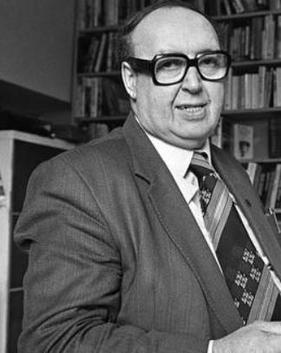Related Research Articles
The Progressive Unionist Party (PUP) is a minor unionist political party in Northern Ireland. It was formed from the Independent Unionist Group operating in the Shankill area of Belfast, becoming the PUP in 1979. Linked to the Ulster Volunteer Force (UVF) and Red Hand Commando (RHC), for a time it described itself as "the only left of centre unionist party" in Northern Ireland, with its main support base in the loyalist working class communities of Belfast.

The Northern Ireland Labour Party (NILP) was a political party in Northern Ireland which operated from 1924 until 1987.
Harry Diamond (1908–1996) was a socialist and an Irish nationalist. He was the MP for Belfast Falls in the Parliament of Northern Ireland, and later the leader of the Republican Labour Party.

Patrick Joseph "Paddy" Devlin was an Irish socialist, labour and civil rights activist and writer. He was a founding member of the Social Democratic and Labour Party (SDLP), a former Stormont MP, and a member of the 1974 Power Sharing Executive.
The United Labour Party was a minor political party in Northern Ireland.
The Commonwealth Labour Party (CWLP) was a minor political party in Northern Ireland. The party was founded in 1942 by Harry Midgley, former leader of the Northern Ireland Labour Party (NILP), in order to pursue his brand of labour unionism.
Henry Cassidy Midgley, PC (NI), known as Harry Midgley was a prominent trade-unionist and politician in Northern Ireland. Born to a working-class Protestant family in Tiger's Bay, north Belfast, he followed his father into the shipyard. After serving on the Western Front in the Great War, he became an official in a textile workers union and a leading light in the Belfast Labour Party (BLP). He represented the party's efforts in the early 1920s to provide a left opposition to the Unionist government of the new Northern Ireland while remaining non-committal on the divisive question of Irish partition.

David Wylie Bleakley CBE was a politician and peace campaigner in Northern Ireland.
William Robinson Boyd, better known as Billy Boyd, was a politician from Northern Ireland.
Frederick Vivian Simpson was a politician in Northern Ireland.
Cyril Toman was a political activist in Northern Ireland.
The 1952 Belfast South by-election was held following the resignation of Ulster Unionist Party (UUP) Member of Parliament, Hugh Gage.
The Labour and Trade Union Group was an organisation for supporters of the Militant tendency in Northern Ireland.

Peter Hadden was a leading member of the Socialist Party in Northern Ireland.
Alan Carr is a former trade unionist and politician from Northern Ireland.
Samuel Napier was a Northern Irish politician.
The Socialist Party of Northern Ireland, sometimes known as the Northern Ireland Socialist Party, was a small socialist group based in Northern Ireland in the 1930s.
Robert Martin McBirney QC, known as Martin McBirney, was a magistrate and politician from Northern Ireland who was assassinated.
The Labour Party in Northern Ireland is the UK Labour Party's regional constituency organisation that operates in Northern Ireland. The Labour Party is not a registered political party in Northern Ireland and does not currently contest elections.
William John Leeburn was a trade unionist and politician from Northern Ireland.
References
- 1 2 3 The Times Guide to the House of Commons: February 1974, p.53
- ↑ Andrée Sheehy Skeffington, Skeff: The Life of Owen Sheehy Skeffington, 1909-1970, p.117
- ↑ "South Belfast 1950-1970", Northern Ireland Elections
- 1 2 "South Belfast 1973-1984", Northern Ireland Elections
- ↑ "Belfast Archived 22 July 2018 at the Wayback Machine ", Northern Ireland House of Commons Election Results
- ↑ Aaron Edwards, A History of the Northern Ireland Labour Party, pp.138, 168
- ↑ Aaron Edwards, A History of the Northern Ireland Labour Party, p.230
- ↑ Aaron Edwards, A History of the Northern Ireland Labour Party, p.201
- ↑ Aaron Edwards, A History of the Northern Ireland Labour Party, p.196
- ↑ Aaron Edwards, A History of the Northern Ireland Labour Party, p.212
- ↑ "The Local Government Elections 1973-1981: Belfast", Northern Ireland Elections
- ↑ Fortnight, no.280, p.4
- ↑ "", The Northern Ireland Housing Association movement.
- ↑ "Erskine Holmes", The Co-operative
- ↑ Sam McBride, "Labour rebels defy party to set up new Northern Ireland party", Belfast Newsletter , 13 April 2016